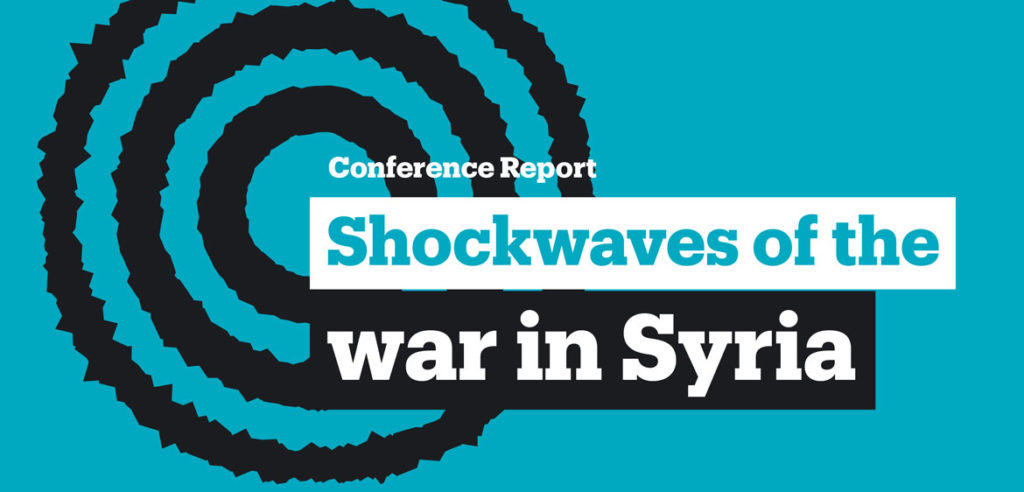The Syrian issue has come to be one of the hottest topics of the global agenda regarding the Middle East. This is further complicated by the involvement and intervention of both regional and major global powers. In the closed session of TRT World Forum titled “Shockwaves of the War in Syria”, Turkish, Syrian, Iranian, and international perspectives on the Syrian war were discussed with the attendance of experts from various backgrounds. The positions of Turkey, Iran and the Syrian opposition were presented by senior figures from these respective countries.
Discussions during the session mainly revolved around issues such as the future of the Syrian regime, influences of international actors, the Astana peace process, as well as the fate of armed groups in Syria. Participants referred back to the early stages of the uprising where the regime used a heavy-handed approach to crush peaceful protests spreading across Syria. During the civil war, the Salafi-Jihadi factions being released from the regime prisons by Assad himself further complicated matters. According to one Syrian expert, civilian populations had long suffered under the oppression of either the regime or of extremist groups like Tahrir al-Sham. Therefore, the opposition as well as the Syrian people welcomed Turkey’s political stance against Assad. While recently the Turkish army helped liberate some areas from extremist factions – allowing local Syrians to enjoy the freedom of self-governance – experts say there is an urgent need to go back to the negotiation table.
With negotiations in Geneva making little progress, the Astana peace talks offer a more neutral platform for Iran and Turkey and provide new energy to the negotiations. According to an Iranian expert, Iran supports dialogue between Turkey and the Syrian regime, which is in line with the spirit of Astana, while Turkey seems to be sticking to the multilateral atmosphere of the process. The Turkish expert claims that Assad’s lack of credibility on the ground has left the country to descend into a chaotic vacuum filled by foreign militias and terror groups, such as the YPG and DAESH, whose fates remain to be an important concern for Turkey. From the Turkish perspective, what needs to be discussed is the spheres of influence of the different actors in Syria to guarantee Syria’s political reorganization and territorial integrity.
Demilitarization and the revival of civilian politics in Syria seem to necessitate the involvement of multiple local and international actors via processes like the Astana peace talks. Whilst experts from different backgrounds do accept divisions and splits in the political landscape, multilateral processes and genuine negotiations seem to ease the transition to a more stable atmosphere in Syria. In this respect, political divisions will have to be tolerated for the sake of territorially intact borders. A transitional political process needs to be carried out by Syrians and this is possible only through multilateral diplomatic efforts that include demilitarization and stabilization of the Syrian landscape.
